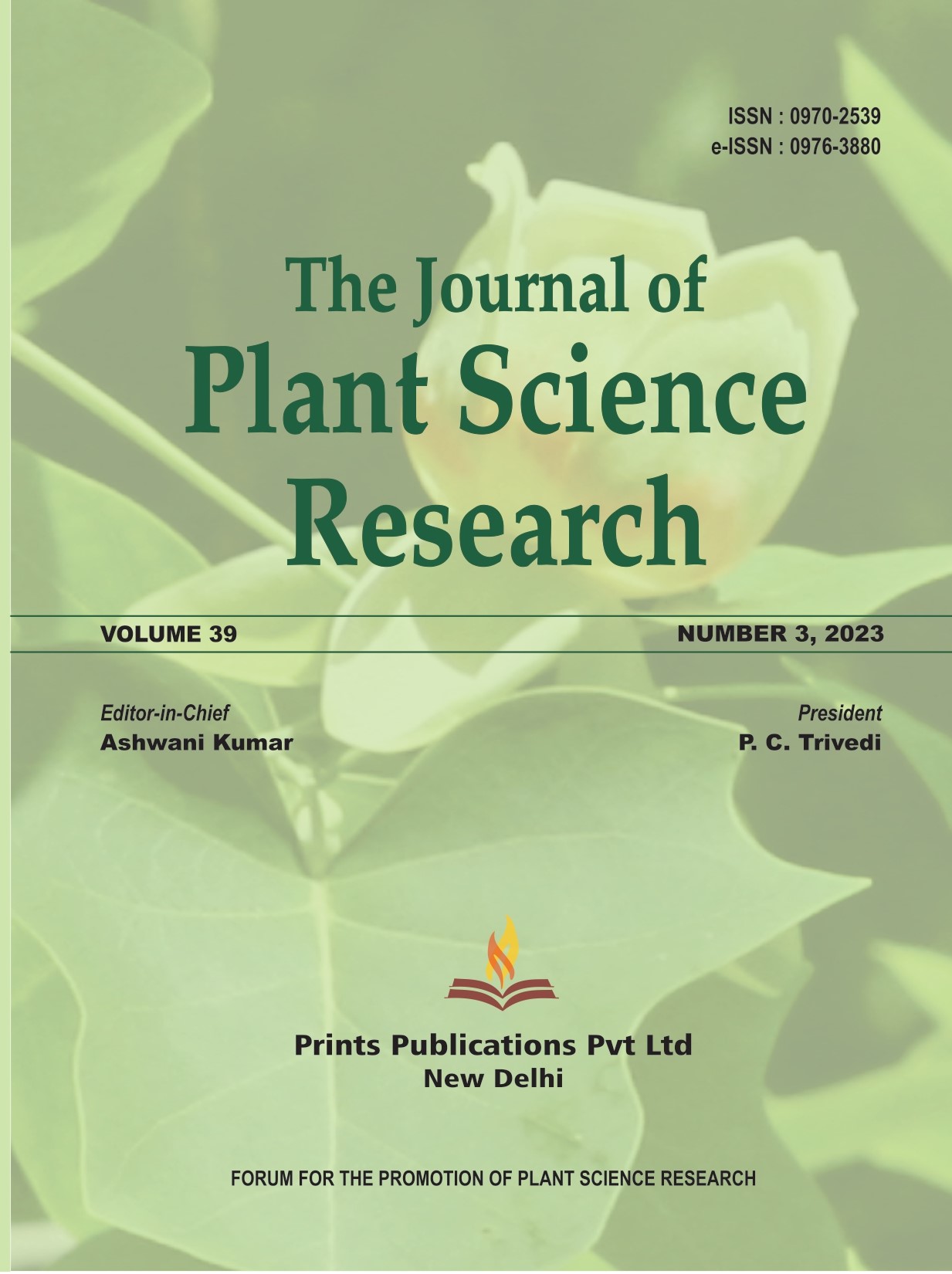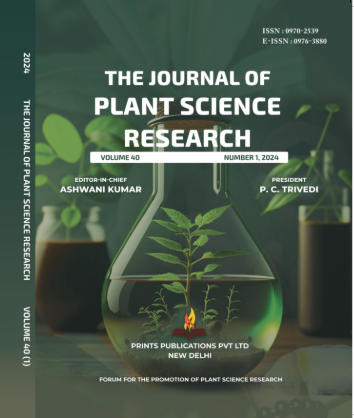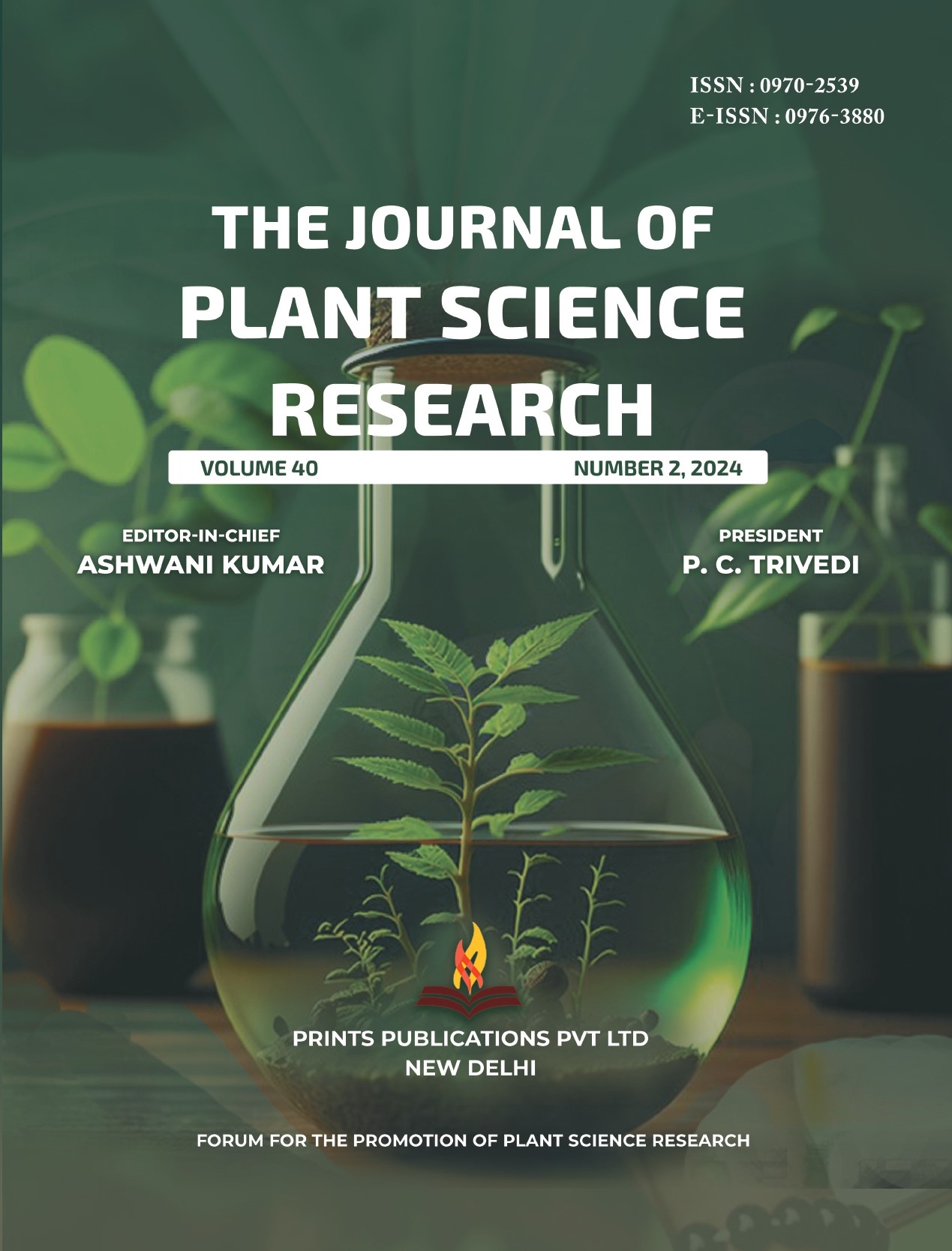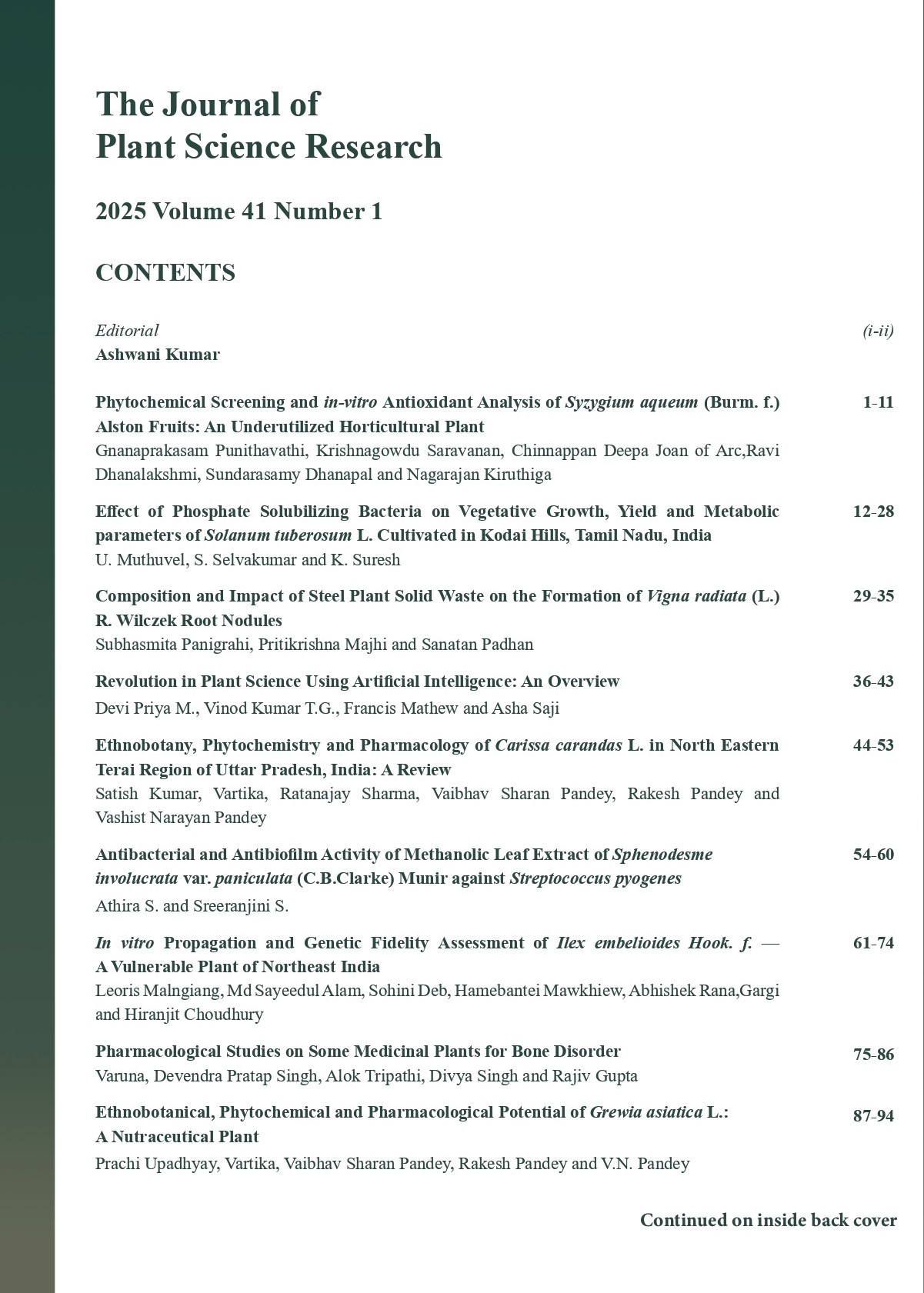The Journal of Plant Science Research - A UGC Care-Listed Journal
Published in Association with Forum For the Promotion of Plant Science Research
Current Volume: 41 (2025 )
ISSN: 0970-2539
e-ISSN: 0976-3880
Periodicity: Tri-annual
Month(s) of Publication: April, August & December
Subject: Botany
DOI: 10.32381/JPSR
Online Access is Free for Life Member
Scenario of Peach Cultivation in Shimla, Himachal Pradesh, India
By : Jitender Kumar, K. K. Pramanick, A. K. Shukla, Santosh Watpade
Page No: 235-240
Abstract
Peach (Prunus persica L.) is one of the most important fruit crops of the Rosaceae family and widely grown in temperate regions of the world. The production scene, systematic cultivation and marketing of peaches could transform the rural economy in the hills of north-western India. Regional Center of Indian Agricultural Research Institute (Elevation of 1900 m AMSL) at Shimla, Himachal Pradesh evaluating the peach cultivars viz. July Elberta, Early Elberta, Snow Queen, Red Globe, Shan-e-Punjab, Sun crest, Glo Haven, Silver King, EC-174084, Paradelux, Saharanpur selection, Red Gold and Independence etc. cultivars are being produced and evaluating for behavioral, climatic adaptation, fruit quality and bud burst to dormancy stage (days ranged from 230 to 330 days in all available cultivars) at above research farm. During the study, the peach fruit average weight ranged from 52.06 to 129.82 g, fruit length ranged from 36.33 to 61.67 mm and width was 48.22 to 62.92 mm. The total soluble sugar content recorded in the above cultivars was 9.46-16.34-degree brix and titratable acidity recorded 0.24 mL to 1.1 mL/100 mL fruit juice. The thickness of the pulp was 16.02 mm to 26.34 mm and after drying 100 g of the pulp, 10.65 to 16.98 g of dry pulp was obtained. Stone average weight was recorded 3.44 to 7.61 g while length and width ranged from 21.49 to 37.09 mm and 14.61 to 26.27 mm respectively. The Pulp: Stone ratio of studied cultivars ranged from 8.79 to 16.41 while TSS: Acidity ranged from 8.6 to 52.70 mL/100mL.
Authors :
Jitender Kumar, K. K. Pramanick, A. K. Shukla and Santosh Watpade
ICAR-IARI, Regional Station (C&HC), Amartara Cottage, Shimla (HP), India.
DOI: https://doi.org/10.32381/JPSR.2022.38.01.25






